The Lord is Risen! Alleluia!Our service of Morning Prayer, Bulletin, and Sermon this week can be found here: And our Songs for this week can be found here:
0 Comments
Scripture Readings: Acts 5:27–32 | Psalm 118:14–29 | Revelation 1:4–8 | John 20:19–31
“The God of our ancestors raised up Jesus, whom you had killed by hanging him on a tree. God exalted him at his right hand as Leader and Savior that he might give repentance to Israel and forgiveness of sins.” (Acts 5:30-31) Happy second Sunday of Eastertide everyone. Last week we celebrated the Resurrection of our Lord, and today we’ll take some time to reflect on this world-changing reality. I’m not just talking about changing our subjective worlds… how we might see and understand things personally… but objectively… how the reality of Christ’s resurrection has been re-shaping world history… impacting how the human story has played out. The resurrection of Jesus Christ truly has changed the world for good… not the least through one of its most precious gifts: that is, forgiveness. Our current culture has developed a deep concern for justice: for uncovering truth, exposing evil, and seeking to set things right. This concern has been aimed towards individuals: calling out hypocrisy, and the hidden sins of celebrities, authorities, and those with influence and power. This uncovering of hidden sins can be seen within Christian circles as well as in the wider world. In recent years, many well-known and respected Christian leaders have been called out and have faced consequences for their misconduct or abuses. In addition to addressing individuals, this thirst for justice has also been channeled to combat corrupt systems too: to challenge and seek to undo things like systemic racism, and sexism, and all sorts of ways that our societies have been structured to benefit one group, and to oppress others. As those who are called to love God and to love all of our neighbours in all that we do, we Christians are on the hook for this as well. We too need to be asking ‘How have we been a part of these problems? And how can we take real steps to help start making things right’? And then there’s the evil at work that’s even bigger than individuals, or systems: the hell of war, where peoples and nations tear each other, and themselves apart. Of course, today we think of the horrors of Russia’s ongoing invasion of Ukraine, and the hundreds or thousands of Ukrainian men, women, and children being brutally slain. In the wake of this truly unjust conflict, international war crimes investigations are now under way, seeking to make known the full truth of these atrocities… in the hopes of one day holding those responsible to account. In these and so many ways, we’re rightly sick of evil having its way in our world. And personally, I think it’s encouraging that there are so many earnestly seeking justice and truth, especially among the younger generations… eager to drive out evil in all of its forms. And yet, I’m also reminded of a sobering quote from Aleksandr Solzhenitsyn, the Nobel Prize winning Russian author, who shared with the world the horrors that he and millions of others faced under Communist rule in the Siberian slave-labour camps. In speaking of the impulse to wipe out those who do evil once and for all, he writes: “If only it were all so simple! If only there were evil people somewhere insidiously committing evil deeds, and it were necessary only to separate them from the rest of us and destroy them. But the line dividing good and evil cuts through the heart of every human being. And who is willing to destroy a piece of his own heart?”[1] His words echo those of St. Paul in his letter to the Christians in Rome: “all have sinned and fall short of the glory of God…” (Romans 3:23). Aleksandr and St. Paul remind us that Good vs. Evil is not a battle of Us vs. Them. It’s a battle that rages inside of everyone. Though this confession may seem like defeat, it’s in this light that the Gospel, the Good News makes it’s hopeful message known: for the resurrection of Jesus Christ is God’s overwhelming victory… but not in the way we often envision bringing evil to an end. After all, Jesus wasn’t raised to wreak revenge on those who had murdered Him… to crush those who had perverted justice, and brutally destroyed His beautiful life. The victory of Easter is not that God has come in righteous power to slay His sinful enemies in return for all they had done. Instead, the radical claim of the Gospel is that God’s righteous, resurrecting power is aimed precisely at His enemies… at sinners… in order to save them. The world-changing conviction of the Church is that the Risen Jesus brings forgiveness of sins through the precious offering of His own blood. To see this claim in action, let’s turn to our reading today from the book of Acts: Our reading jumps right into the action, with the Apostles of Jesus, led by the Holy Spirit of God, facing off against the Jewish High Priest, Caiaphas, and the other religious leaders of Jerusalem. Actually, this wasn’t the first time this had happened. Back in Acts Chapter 4, Peter and John had been arrested “because they were teaching the people and proclaiming that in Jesus there is the resurrection of the dead.” (Acts 4:2). But despite their threats and warnings, Peter and John would not stop speaking about the Good News of Christ’s resurrection, and were eventually released. After this, the Christian community kept growing, and many were being healed by the Apostles and the work of God’s Holy Spirit through their faithful witness. And then, in Acts Chapter 5, the High Priest and those with him had all the Apostles arrested, but in the night, an angel opened the prison doors and set them free, telling them to go to the Temple and keep teaching others about Jesus. Finally, they have the Apostles arrested a third time, which is where our reading today picks up the story… with the High Priest trying in vain to stop the Apostle’s mission. “We gave you strict orders not to teach in this name,” Caiaphas cries out, “yet here you have filled Jerusalem with your teaching and you are determined to bring this man’s blood on us.” (Acts 5:28). You are determined to bring this man’s blood on us. Maybe we can hear echoes from the first pages of the Bible, and the story of Cain and Abel, and the first shedding of innocent blood, and Cain’s attempt to avoid responsibility for his sin. These echoes resound through all of human history, as we have, time and again, turned on one another… and all innocent blood calls out for justice, and for God to respond. And here in Acts, God does respond through the Apostles empowered by God’s Holy Spirit. But rather than calling for blood in return, for revenge, they boldly share the Good News they had been entrusted with: that Jesus Christ, was raised to life by God… to bring repentance to Israel… including those who had Him murdered, to turn them back to God, and to bring them forgiveness of sins! Acts 5:29-32, “We must obey God rather than any human authority. The God of our ancestors raised up Jesus, whom you had killed by hanging him on a tree. God exalted him at his right hand as Leader and Savior that he might give repentance to Israel and forgiveness of sins. And we are witnesses to these things, and so is the Holy Spirit whom God has given to those who obey him.” The High Priest didn’t want Jesus’ blood on him. But Jesus’ blood was actually how God intended to rescue them. Blood has long held a deep significance for Israel. It represented life, and in their atoning sacrifices, those meant to deal with the sins of God’s people and renew their closeness with God, blood of the sacrificial animal was shed and offered up on behalf of another. These sacred sacrifices, performed by their High Priests, involved the confession of Israel’s individual and communal sins… of humbly refusing to try to justify or hide their evil from the eyes of the Living God, and instead own up to their failures. In this light, blood then became not only a reminder of the guilt of the people, but also a sign of their pardon and restoration by the mercy of God. Back in Acts, the High Priest and religious leadership were resisting their opportunity to own up to their responsibility for Christ’s murder. They were not willing to acknowledge their share of the blame, or to change the course they had set in rejecting the now risen Lord. In their own words, they didn’t want Christ’s blood to be on them. But the Apostles had come to understand that it is precisely by the blood of Jesus that God is calling all people, including Israel, to a new beginning: that Christ’s blood alone brings true pardon and peace with God… the seeds of new life for all who will receive it… for Jews and Gentiles alike. As the full quote from St. Paul reminds us: “For there is no distinction, since all have sinned and fall short of the glory of God; they are now justified by his grace as a gift, through the redemption that is in Christ Jesus, whom God put forward as a sacrifice of atonement by his blood, effective through faith” (Romans 3:23-25). The Apostles themselves had encountered this forgiveness from the Risen Lord, who despite their desertion, denials, and doubts, offered them His peace and pardon. And so the Apostles, and with them the whole Christian Church, throughout the ages and around the world, refuse to keep silent about this Good News: Christ’s blood does not bring condemnation, it brings redemption! Believe it! And this is to be our response. To believe this world-changing message… not only for ourselves, as we live lives of repentance, turning to God our Heavenly Father, and in Christ finding freedom from our sins and failures… but also to believe that this is the means by which God longs to bring freedom to all. Not by covering up sins, or by dismissing their destructive force… but by helping us all come clean… to turn from our old ways and pursue justice and truth… and to discover God’s resurrection power, mercy, and love… to see Christ risen from the dead in order to fix our world’s fractured foundation. To overcome our evil, and offer us new life. The Living God raised Jesus Christ from the dead to bring us repentance, and forgiveness of sins. How might this kind of forgiveness take shape in our world today? Here’s one deeply Christian response: Desmond Tutu, who died this past December, was an African Archbishop in Cape Town, South Africa, and an outspoken activist and opponent of the racially oppressive Apartheid government in South Africa. After its fall, Desmond Tutu was charged to head up their Truth & Reconciliation Commission, which sought to find a path forward for their very divided nation apart from revenge, violence and bloodshed. The following words are his, excerpts from an essay written in 2004: “Forgiving and being reconciled to our enemies or our loved ones are not about pretending that things are other than they are. It is not about patting one another on the back and turning a blind eye to the wrong. True reconciliation exposes the awfulness, the abuse, the pain, the hurt, the truth. It could even sometimes make things worse. It is a risky undertaking, but in the end it is worthwhile, because in the end only an honest confrontation with reality can bring real healing. Superficial reconciliation can bring only superficial healing… We have had a jurisprudence, a penology in Africa that was not retributive but restorative. Traditionally, when people quarreled, the main intention was not to punish the miscreant but to restore good relations. This was the animating principle of our Truth and Reconciliation Commission. For Africa is concerned, or has traditionally been concerned, about the wholeness of relationships. That is something we need in this world —a world that is polarized, a world that is fragmented, a world that destroys people. It is also something we need in our families and friendships. For retribution wounds and divides us from one another. Only restoration can heal us and make us whole. And only forgiveness enables us to restore trust and compassion to our relationships. If peace is our goal, there can be no future without forgiveness.”[2] Today is Easter Sunday for all our Orthodox sisters and brothers… which includes the vast majority of Christians in both Russia and Ukraine. What might it look like for God’s gift of repentance and forgiveness to be at work in Ukraine in the days to come? Or in the many countries where violence continues to rage? We don’t yet know. But let us pray that God’s resurrection power, His mercy, love, and forgiveness may be at work turning darkness into light, and bringing new life to all. I’ll end now with these words from the book of Revelation from this morning’s reading. Though spoken long ago, they echo through the ages to us today: “Grace to you and peace from him who is and who was and who is to come, and from the seven spirits who are before his throne, and from Jesus Christ, the faithful witness, the firstborn of the dead, and the ruler of the kings of the earth. To him who loves us and freed us from our sins by his blood, and made us to be a kingdom, priests serving his God and Father, to him be glory and dominion forever and ever. Amen.” (Revelation 1:4-6) [1] Aleksandr Solzhenitsyn, The Gulag Archipelago: An Experiment in Literary Investigation, Abridged (Toronto, ON: Harper Perennial Modern Classics, 2007), 75. [2]Desmond Tutu, Forgiveness (Online Article found here: https://greatergood.berkeley.edu/article/item/truth_and_reconciliation). The Lord is Risen! Alleluia!Today our brothers and sisters in the Orthodox tradition, including the majority of Christians in Ukraine and Russia, are celebrating Easter and the resurrection of our Lord Jesus Christ. We continue to lift up the people of Ukraine, and to pray for God's peace to reign. Here are some prayers that have been prepared to bring these concerns to our Heavenly Father. Our service of Morning Prayer, Bulletin, and Sermon this week can be found here: And our Songs for this week can be found here: The Lord is Risen! Alleluia!Today we celebrate the Good News of the resurrection of Jesus Christ from the dead, and God's gift of New Creation found in Him. Because Christ lives, we can face even the darkest days trusting that God's saving love has conquered death, shattered the powers of sin, and set us free to share His life for all eternity. The cross, in all it's cruelty, could not bring an end to God's Messiah, who bore its shame and terror for us, and transformed it into a sign of the unstoppable love of the Living God. Alleluia! Jesus Christ our Saviour lives! Let us draw near to our Lord in worship, prayer, and praise. Lord of life and power, through the mighty resurrection of your Son, you have overcome the old order of sin and death and have made all things new in him. May we, being dead to sin and alive to you in Jesus Christ, reign with him in glory, who with you and the Holy Spirit is alive, one God, now and for ever. Amen. Happy Easter everyone. Alleluia! Rob+ This Sunday our In-Person service at St. Luke's GP will be one of Lessons & Hymns, followed by Holy Communion, but with no Sermon. In it's place, for our At-Home service you are invited to take a few moments after the Gospel to reflect on the readings, and specifically on the hope of the resurrection for yourself, our communities, and our wider world. Our service of Morning Prayer and Bulletin this week can be found here: And our Songs for this week can be found here: Christ became obedient unto death: O come, let us worship.Our At-Home service for Good Friday, Bulletin, and Songs can be found here: In addition, here is a link to our Stations of the Cross video, featuring the paintings of Fr. Sieger Köder:
Scripture Readings: Exodus 12:1–14 | Psalm 116:1–2, 12–19 | 1 Corinthians 11:23–26 | John 13:1–17, 31b–35
Tonight is a holy night: Maundy Thursday, where we gather to retell the story of Christ’s last moments with His disciples before His betrayal, arrest, condemnation, and crucifixion. On this night, our Lord Jesus shared the sacred Passover meal with His disciples… reliving the great story of God’s redemption of Israel from Egypt, centuries earlier… yet pointing ahead to a new and ultimate act of salvation: His own body to be broken. His own blood to be shed for all. On this night, our Lord Jesus stooped down to serve His students… taking hold of their soiled feet, and washing their filth away. Taking on Himself the lowest status in ways that even Peter found hard to handle… and offering a new vision of it means to be great in God’s eyes. And on this night, our Lord Jesus gave His followers a new command: that we love one another. “Just as I have loved you,” He says “you also should love one another. By this everyone will know that you are my disciples, if you have love for one another.” (John 13:34-35). On this night we have been given the heart of the Christian life: an essential characteristic of a Christian, our Lord tells us, is love for other Christians. This isn’t an ideal to affirm, but not to really put into practice. Or an optional add-on, for those who want to go above and beyond. This is a commandment. A requirement from our Lord of all who would follow Him. Our “marching order”, so to speak, is to love one another. This makes no sense at all if what we mean by love is our spontaneous and natural inclinations… our feelings of affection or attraction to others. That’s what much of our culture considers love: our desires for friendship, companionship, and a sense of belonging. But on this night Jesus our Lord gives us a clear definition of what He means by love: that is, commitment… compassion… care… and at the cross: the laying down of one’s life to lift up the life of another. To live like this… to love like this will certainly shift and shape our desires, but at the heart of things this kind of love is not a feeling to follow… it’s a choice to make. It’s an act of will, and for us, an act of obedience to the one that we call Lord. To the one who laid His own life down for us. The author and United Methodist Bishop, Will Willimon, recalls what’s going on in wedding vows: “Note that, in the Service of Marriage, the pastor doesn’t ask, ‘John, do you feel like you love Susan?’ The question is, ‘John will you love Susan?’ Love is here defined as an act of the will, something we decide to do, a gift that we promise to give”[1] This night, the new commandment we’re given is to decide to love one another… to choose to commit ourselves to our brothers and sisters in Christ. To give ourselves to one another. Not in the abstract, but in our every day relationships. With the brothers and sisters in Christ we know… those who share these pews… and those who join with us at Christ’s table. Take a moment to look around the room. Think of those who are not with us this evening, but who have been a part of our Parish family. Think about those we know in other Parishes… those in other denominations. These are the actual people that Christ has commanded us to love “as He has loved us”. And not only to them, of course… for the Good News of God’s kingdom is meant for all. “God so loved the world that he gave his only Son, so that everyone who believes in him may not perish but may have eternal life.” (John 3:16) But as the saying goes: “A glass can only spill what it contains.” We can only share with others what we have ourselves first received. We can only invite our neighbours into the new life of Christ’s kingdom, the new life of God’s family, when we are living it out ourselves… when we are practicing patience… forgiveness… humility… hospitality… mercy… faithfulness… not perfectly, of course… but choosing to practice this new life together all the same. For it is precisely because God’s saving, self-giving love in Jesus Christ is meant to be shared with all the world that we are called to share it with one another. For if we who have received the love of God decide not to love one another… we are turning our back on the Good News that we Christians claims to believe. And how will the world believe us about God’s self-giving love offered to all in Jesus Christ if we chose not to practice it ourselves? On this night, our Lord says to us: “By this everyone will know that you are my disciples, if you have love for one another.” (John 13:35). This love is God’s gift to the world in Jesus Christ, meant to be made known through the life of the Church… through Christians like us who are committed to putting it into practice. This love is what we’re created for, it is God’s life at work in us. Again, Bishop Willimon has wisdom for us: “Lest you despair at his sweeping command to love, remember that it is within this setting that Jesus promises to send the Holy Spirit who gives us what we need to be obedient to Jesus’ command. He does not expect us to love on our own.”[2] This is what this night is all about: in Jesus Christ our Lord, the Living God offers Himself to us in love… and through His Holy Spirit, is working in us to draw us all together in Him. His new commandment is simply to share with one another the gift He offers to us all… God’s new life, the new creation Jesus has won for us at the cross. So this night, as we draw near to Christ’s table together, and as we follow Him tomorrow to the cross… let us receive from Him God’s gift of love, and with the Holy Spirit's help, let us give it to one another. Amen. [1] William H. Willimon, Thank God It’s Thursday: Encountering Jesus At The Lord’s Table As If For The Last Time (Nashville, TN: Abingdon Press, 2013), 58. [2] William H. Willimon, Thank God It’s Thursday: Encountering Jesus At The Lord’s Table As If For The Last Time (Nashville, TN: Abingdon Press, 2013), 42. This is the night that Jesus our Lord washed His disciples feet, shared with them the Last Supper, and gave to us a new commandment: “Just as I have loved you,” He says “you also should love one another. By this everyone will know that you are my disciples, if you have love for one another.” (John 13:34-35). The word "Maundy" comes from the Latin mandatum, which means “commandment”, referring to this sacred commission Christ gave to all His followers. A few weeks back we shared a short video from the Bible Project exploring the Scripture's understanding of love. In case you missed it, here it is again: Our At-Home service of Evening Prayer, Bulletin, & Sermon for Maundy Thursday can be found here: And our Songs can be found here: Today marks the beginning of Holy Week: the start of Christ's journey from the expectant praise of the crowds on Palm Sunday, through the humble, self-giving love shared on Maundy Thursday, to the horrible suffering and shame endured on the cross on Good Friday, and finally to the world-changing hope of His resurrection at Easter. During the season of Lent we have been on a journey preparing for Holy Week through prayer, repentance, fasting, reflection, and generosity, intentionally returning to the basics of our faith: our calling to lives of holy love, our deep need for forgiveness and grace, and above all the gift of God's salvation in Jesus Christ the Lord. Here is the sixth and final video in a series from the Bible Project exploring the Shema, a passage of Scripture at the heart of both the Jewish and Christian faith: "Hear, Israel! The Lord is our God, the Lord is one! And you shall love the Lord your God with all your heart and with all your soul and with all your strength." (Deuteronomy 6:4-5, NASB) Instead of a Sermon this Sunday, we are invited to spend some more time reflecting on the Gospel readings, both of the triumphant entry of Jesus into Jerusalem, but also of His faithful sacrifice on the cross. In our Morning Prayer service the Gospel reading has several invitations to pause and prayerfully reflect on the unfolding story. Please do not rush through this time, but invite the Holy Spirit of God to make known the significance of what Jesus Christ our Lord has done. It may be beneficial to slowly read the Gospel aloud, and to make a note of any parts of the reading that especially stand out. Throughout the coming week, bring all these things to God of prayer. Our service of Morning Prayer, and Bulletin this week can be found here: And our Songs this week can be found here: Scripture Reading: Isaiah 43:16–21 | Psalm 126 | Philippians 3:4b–14 | John 12:1–8
“…forgetting what lies behind and straining forward to what lies ahead, I press on toward the goal for the prize of the heavenly call of God in Christ Jesus.” (Philippians 3:14) There’s a lot we can say about fear: fear for our world… for ourselves and those we love. But this morning I want to specifically talk about our fears for the future of St. Luke’s Church and our Parish… fears shared by many Christian Churches these days. Looking back a few decades, it all seemed like a very different situation: pews were full; Sunday School programs were packed; the younger generation seemed like a pretty solid foundation for our institutions. As we know, that’s not the case these days… for a whole lot of reasons. Some that we are responsible for, and others outside our control. For those of us who love and believe in the Church’s significance, this situation is a frightening one, and we naturally wonder where things are headed… and what we can do to perhaps head in a different direction? Saying all this stuff out loud is important. We need to name our grief for what it is. And it’s ok to be sad that the story of St. Luke’s, and many congregations, has not turned out the way we had expected. But as important as it is to acknowledge our disappointments, and to try our best to turn things around, there is the real danger before us of choosing to follow our fears… our fears of future loss… our fears of failure… anxieties which can only leads us away from God’s self-giving love, if we choose to focus instead on protecting ourselves. But through our Scripture readings today, we are invited to follow a different path… to not be led by our fears, but to face the future with a heavenly hope. One which can help us gives thanks for God’s past mercies and grace… help us faithfully persevere amid the challenges that each day brings, and open us up to take our part in the New Life God is bringing about. In our first reading, we heard from the prophet Isaiah a message of hope from God for Israel at a time when it seemed the future of their community was in jeopardy. They were facing tough times in the shadow of their powerful pagan neighbours, in large part because they had been unfaithful to the LORD their God. Yet alongside the words of warning that the prophet Isaiah offered came an invitation to turn to the Living God and trust in His saving love. Isaiah 43 begins this way, with verses 1-3: “But now thus says the Lord, he who created you, O Jacob, he who formed you, O Israel: Do not fear, for I have redeemed you; I have called you by name, you are mine. When you pass through the waters, I will be with you; and through the rivers, they shall not overwhelm you; when you walk through fire you shall not be burned, and the flame shall not consume you. For I am the Lord your God, the Holy One of Israel, your Savior.” These promises and assurances from God don’t just spring out of nowhere. They call to mind the many amazing things the LORD has done for Israel: redeeming them from slavery, providing for them in in the wilderness, establishing them in the Promised Land, and preserving them through countless catastrophes… even ones they had brought upon themselves. But the hope that God is offering in Isaiah Chapter 43 is not simply found by dwelling on the past, or by desperately trying to fix their present problems all by themselves... Rather, it is to be found by looking to the LORD in active faith today… to turn to the One who has been faithful all along, who is with us, even in our present troubles, and who calls us to trust Him with our future, and the New Life that He is bringing about. Isaiah 43:18-19, “Do not remember the former things, or consider the things of old. I am about to do a new thing; now it springs forth, do you not perceive it?” The prophet points us forward to anticipate not a return to the glories of the past, but to the “new thing” God has in store… something far beyond what Israel, or you and I, could have imagined: God’s New Life, His New Creation breaking through at last. Many centuries later, this ‘new thing’… this New Life from God was finally coming to light in Jesus Christ, God’s Son. And in our reading today from the Gospel of John, we catch a glimpse of a His rescuing hand at work in the life of one of His followers… bringing something to life that breaks the awful power of fear: grateful, self-giving love. This passage takes place in the town of Bethany, at the home of Martha, Mary, and Lazarus, the now-famous friend of Jesus who had died, and whom Christ had restored to life after four days in the grave. This is a significant point that we really need to pause and take note of: Not long before, there had been absolutely no natural hope left for Lazarus. He had no future at all, apart from the power of Jesus Christ to step in and set him free from the grave. But Christ had come… and so Lazarus lived again. In a nutshell that is the Christian hope: Christ has come; in Him we live. Returning to Bethany, we find Mary, the sister of Lazarus, offering a lavish display of gratitude to Jesus: she pours out on His feet precious anointing oil, then wipes it with her hair. It’s a beautiful moment. An example of humble, self-giving love… a striking picture of worship… filling the house with the fragrant offering of thanks and praise, in response to what Christ has done for her. But there was a problem: after all, this gift was a huge waste. It was not at all practical… as Judas Iscariot points out. This act was not going to help feed the poor. Or draw more people into Christ’s growing movement. Surely these resources should have been used much more efficiently. On the other hand, as the author, John, points out, this gift was also not going to feed Judas’ own selfish desires either… it did nothing to satisfy his greed… a temptation that rests on the lie that we don’t have enough. How often do we let our own selfish desires and fears of not having enough lead the way? Lent is a great time to seek to become more aware of our own false motives, and consider how we too might need to let go of them. Even so, Judas raises an important point: the practical matters of God’s kingdom work do matter, after all! The poor need to be clothed and fed. The Good News needs to be shared with our world, and we do need to invite other people to join us in pursuing it. And there are times when it really does seem like we don’t have enough to do what we’ve been called to do. Times when we can easily find ourselves simply acting out of fear. But the WHAT of the Church, the things we are called to do in the present as God’s people, flows out from the WHY… from the Good News of what the Living God has already done in the past… from His ongoing presence with us even now… and from the hope of a future that only He can open up for us to share in. It makes perfect sense to be led by fear when troubles come if we are all on our own. But the Good News is that in Jesus Christ God our Saviour is with us. St. Paul speaks to this same basis for hope in our reading today from his letter to the Philippians. If hope for the future of God’s people rested on our human efforts and success, than St. Paul had plenty of reasons to be confident in himself: as far as Israelite heritage, religious learning, and sincere devotion were concerned, St. Paul had it all. Or in his words: “If anyone else has reason to be confident in the flesh, I have more” (Philippians 3:4). Yet this same man had also experienced tremendous difficulties, struggles, persecutions… the loss of everything. And yet he did not despair, and let his life be led by fear. For St. Paul saw himself as sharing in the sufferings of His Saviour… Jesus, God’s own Son, who had not grasped onto His identity as the Almighty One, but who emptied Himself, and took up the mantle of humble service instead. More than that, He took up the cross, embracing for our sake the loss of every conceivable sign of success… abandoned by both young and old, by the rich and poor alike… Jesus gave up everything, His body and blood… as an act of self-giving, faithful love for His Father in Heaven, and for a world of lost sinners like us. The spectre of the cross was a truly frightful situation… the Gospel authors tell us Jesus dreaded facing it Himself. But even so, He was not led by fear, but by the love of the Living God. He could let go of all else as long as He stayed true in the love of God… a love that loss, betrayal, humiliation and even death could not overcome. And so, following in Christ’s footsteps, St. Paul could now let go of all else too: let go of his past success… let go of his expectations for the present… led by the love of the Living God to pursue wholeheartedly the New Life that, in Christ, the LORD was now bringing about. “…forgetting what lies behind” he says, “and straining forward to what lies ahead, I press on toward the goal for the prize of the heavenly call of God in Christ Jesus.” (Philippians 3:14) Today we’re invited to follow in St. Paul’s footsteps, as he followed Jesus our Lord: Not to place our hope in retrieving the glory of the past, but giving thanks for the good things God has done… grieving the loss of what has come to an end, and then placing the past in the hands of our faithful Saviour. And we are invited not to be led by fear in the present either: but to faithfully share in the sufferings of our Saviour… honestly bringing our fears to Him in prayer, just as He calls us to! Remember the words of St. Peter, “Cast all your anxiety on [God], because he cares for you.” (1 Peter 5:7). Are we concerned about empty pews? Then let us pray, but not just that they may be filled for our sake, but that God would also help all of us to bring His Good News and self-giving love to those who may never darken our doors. Let us learn to pray for them just as earnestly. Are we worried about small Sunday schools and the absence of younger generations? Then let us pray, but not just so that more young people will come here and make us feel more secure. The younger generation is not our future. We can’t place our hopes on them to save the Church… or for that matter, we can’t put that kind of pressure on their shoulders! What they need is not more burdens… what they need is to experience the freedom, and peace, and joy, and fellowship, and love, and New Life in Jesus Christ! That is why we want young people here… to share the Good News and God’s gift of love with them. Otherwise, we’re not seeing them as they are… as beloved children of God. Otherwise, we’re just making them into a means to an end… to serve our own desires. I’ll say this again: The future of the Church is not about having more young people. But the future of the Church invites young people into God’s story, just like the rest of us… because the future of the Church is God’s gift to us all in Jesus Christ. It’s the gift of freedom where once there was only fear. Joy where there once was sorrow and grief. Purpose and meaning where all once seemed hopeless. The future of the Church of Christ is New Life where there was none… a future that only the Risen Lord Himself can guarantee. Back to John Gospel again. It once seemed that Mary had lost everything in the death of her beloved brother, but Jesus had done what no one else could do and brought them new life again. In thankfulness and praise, Mary offered back to Jesus a beautiful gift of love… an act of worship… a longing to bless the Lord, and share her love for Him. When Judas protests, Jesus defends Mary’s so-called ‘wasteful’ gift. She was responding with all of her heart to the mercy and grace she had received, and her gift of worship and self-giving love became a part of the story of God’s salvation… preparing the way for the cross, and the New Life that Christ won for us there. We are invited today to bring all our fears to the Lord and leave them with Him. And instead, to be led by the life-giving love of Jesus… to respond like Mary to His mercy and grace with worship, thanksgiving, and praise… like St. Paul to share in Christ’s sufferings and loss for a time, but filled with the hope that in Christ alone our future is on solid ground... pursuing our deepest calling as the Church to make known His self-giving love in all we say and do. Love, not fear needs to lead us forward as a Parish. Love, not fear which is ours to share in Jesus Christ. So let us bring our fears to our Heavenly Father, and pray that His saving will be done in our Church, and press on in hope together towards the heavenly calling of God in Jesus Christ. Amen. We are journeying together through Lent, a sacred season of prayer, repentance, fasting, reflection, generosity, and preparation for Holy Week. Each year, Lent calls us to remember and return to the basics of our faith: our calling to lives of holy love, our deep need for forgiveness and grace, and above all the salvation of God in Jesus Christ the Lord. Here is the fifth video in a series from the Bible Project exploring the Shema, a passage of Scripture at the heart of both the Jewish and Christian faith: "Hear, Israel! The Lord is our God, the Lord is one! And you shall love the Lord your God with all your heart and with all your soul and with all your strength." (Deuteronomy 6:4-5, NASB) Our service of Morning Prayer, Bulletin, and Sermon this week can be found here: And our Songs this week can be found here: |
Rev. RObRev. Rob serves as the Priest-in-Charge at St. Luke's Gondola Point, and as the School Chaplain at Rothesay Netherwood School Archives
June 2024
Categories
All
|
|
5 Quispamsis Road, Quispamsis NB, E2E 1M2
Mail to: 12 Quispamsis Road, Quispamsis NB E2E 1M2 |
Contact Us
Parish Phone: 506-847-3670 | www.stlukesgp.ca | www.facebook.com/StLukesGP/ Rev. Rob: 506-608-1772 | [email protected] |
Proudly powered by Weebly

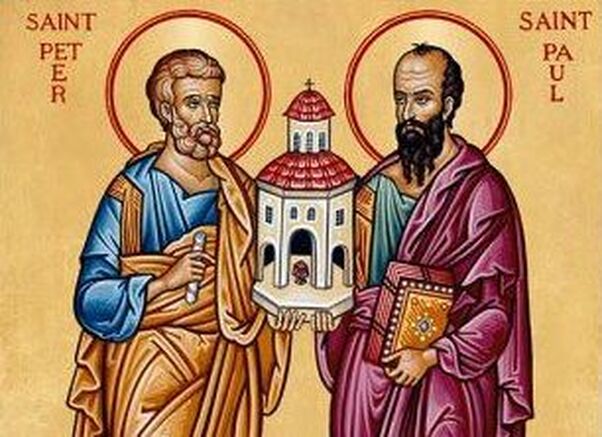
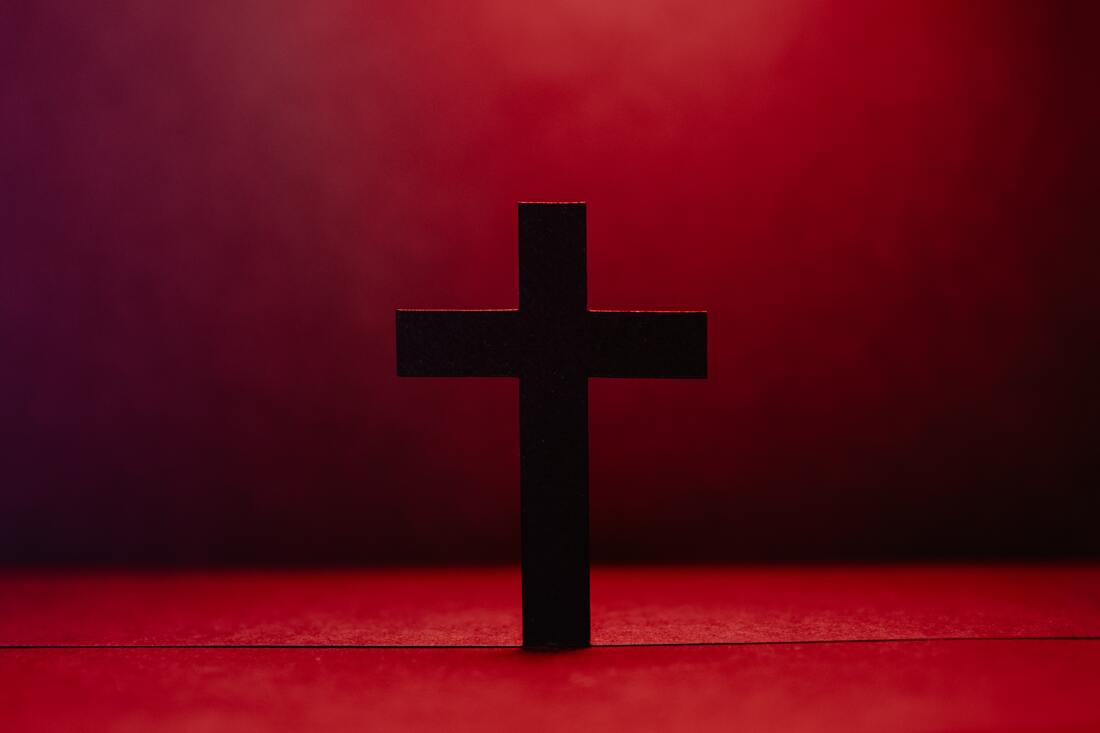
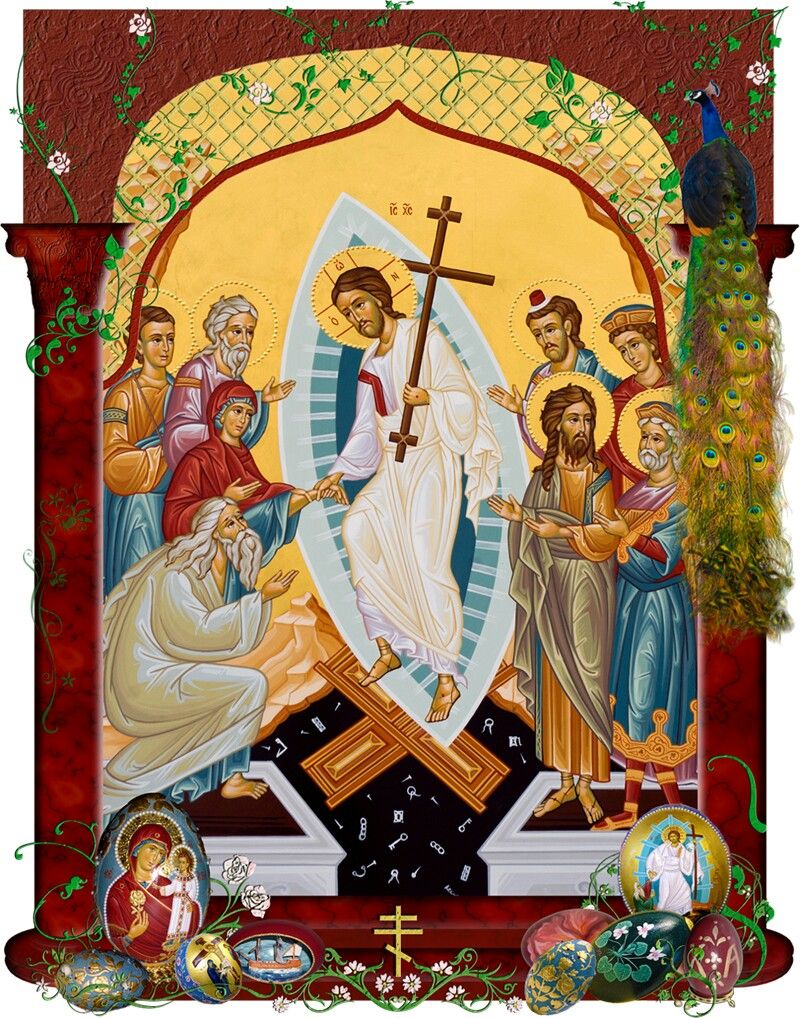
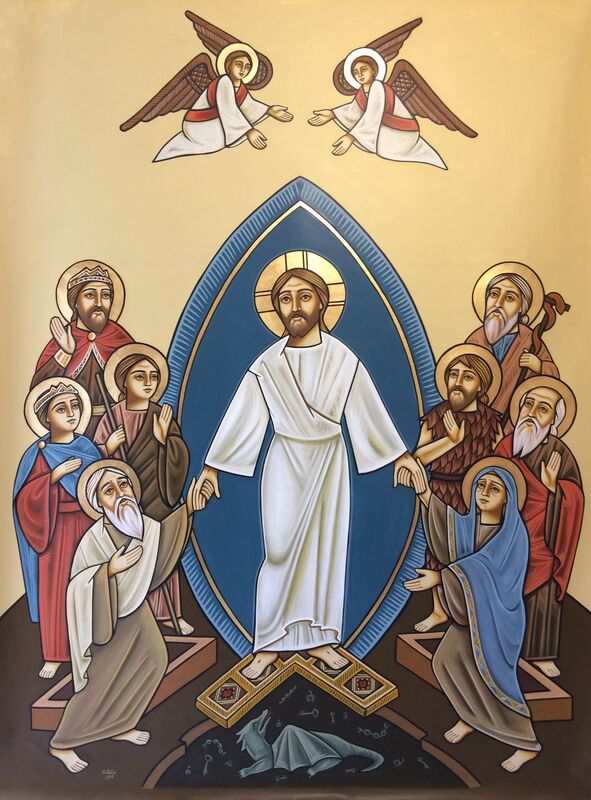
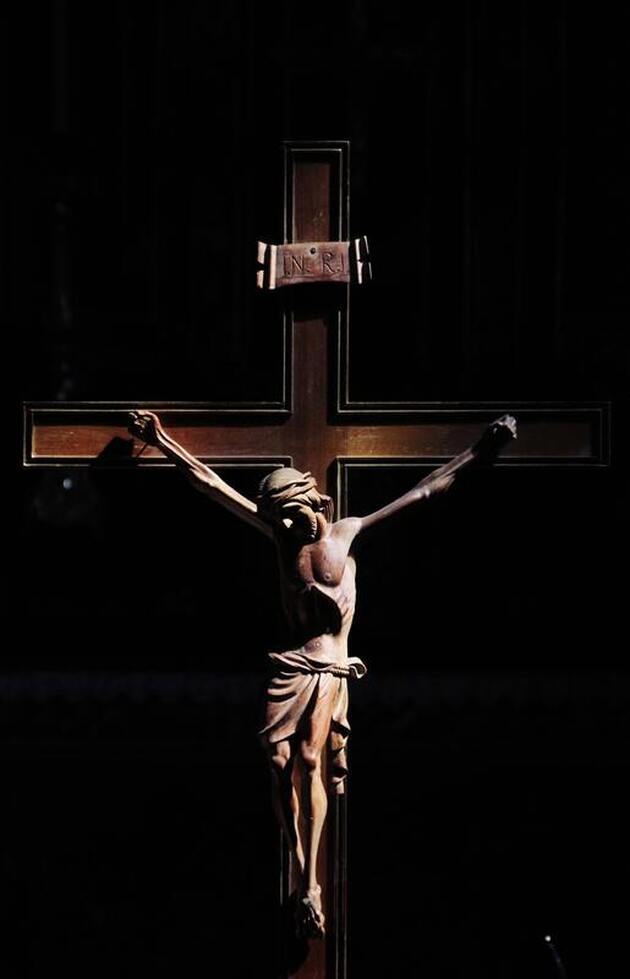
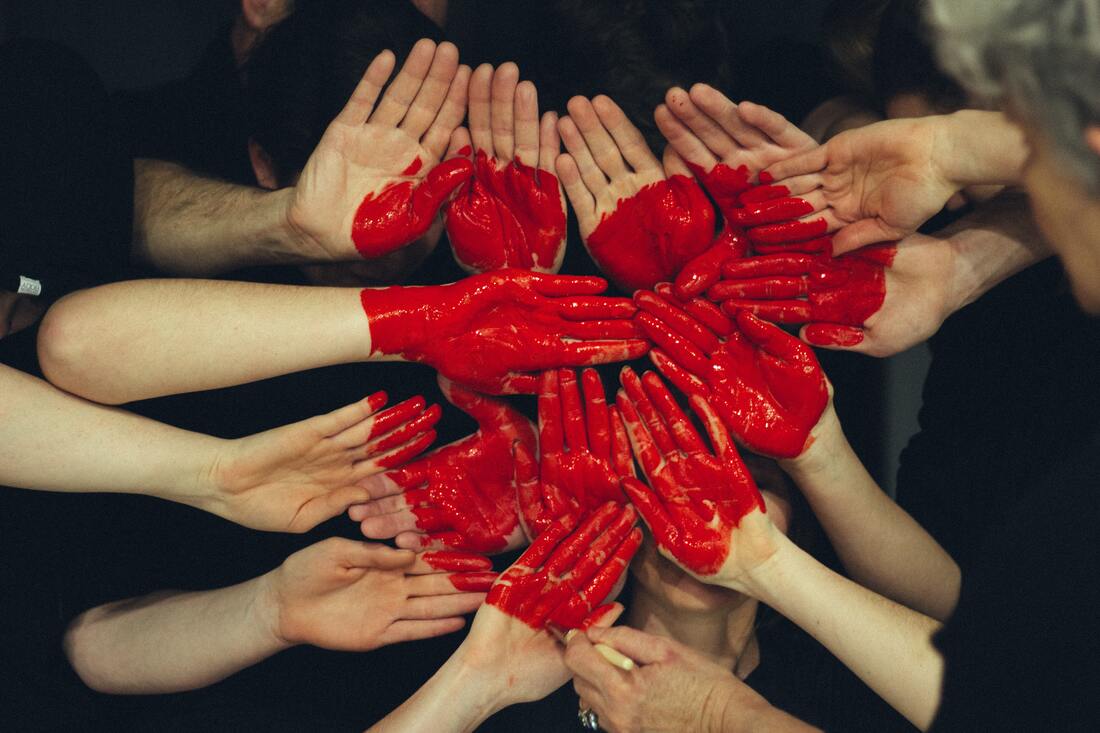
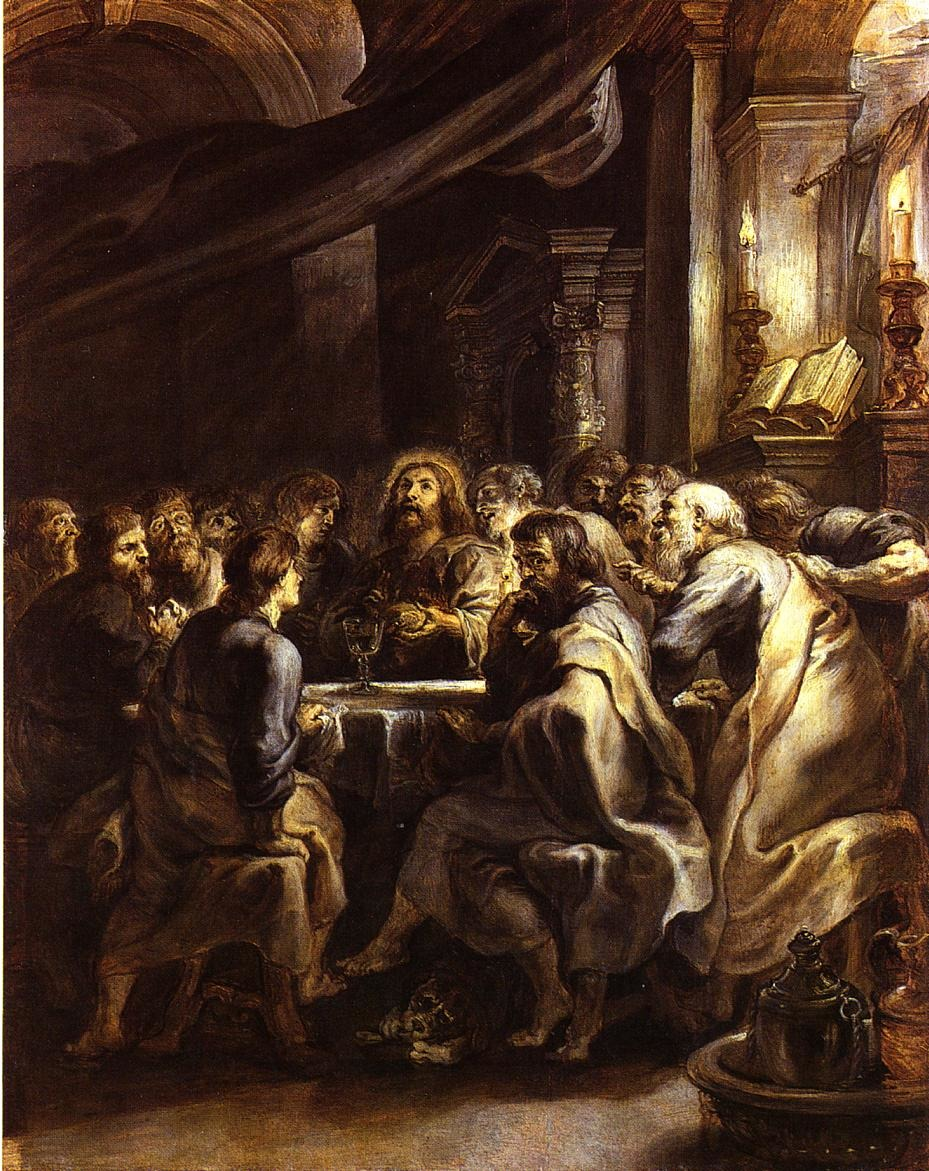

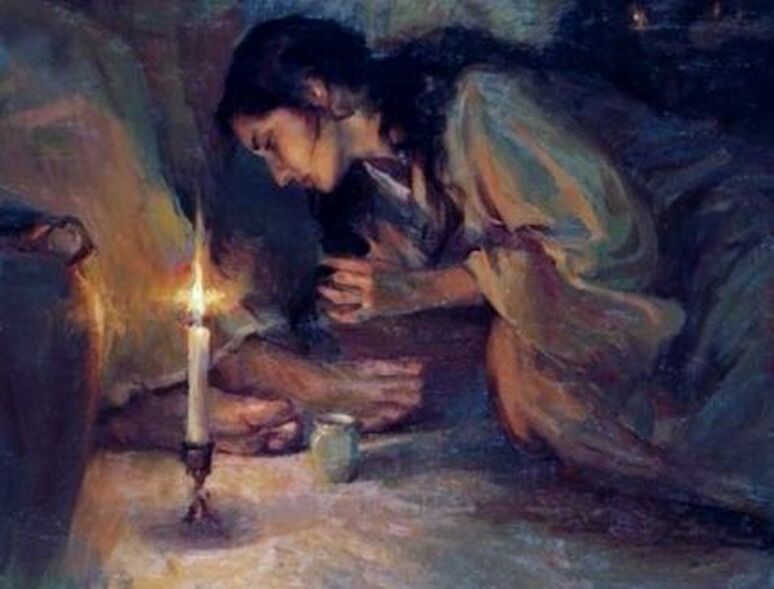
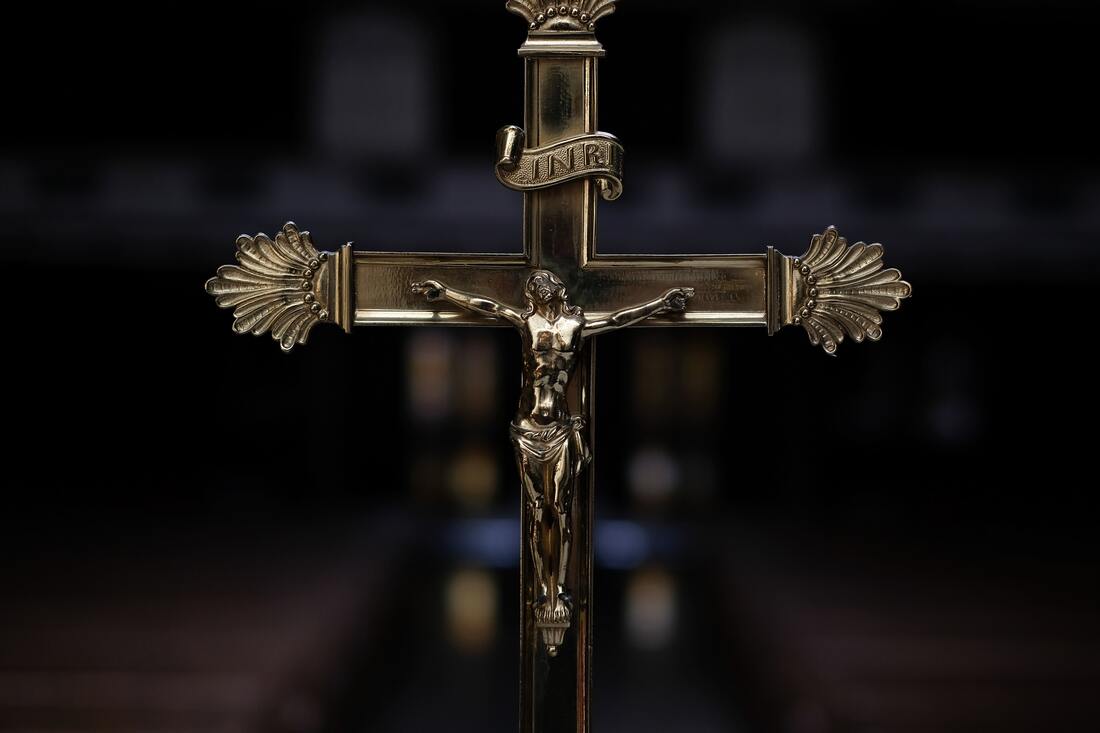
 RSS Feed
RSS Feed
